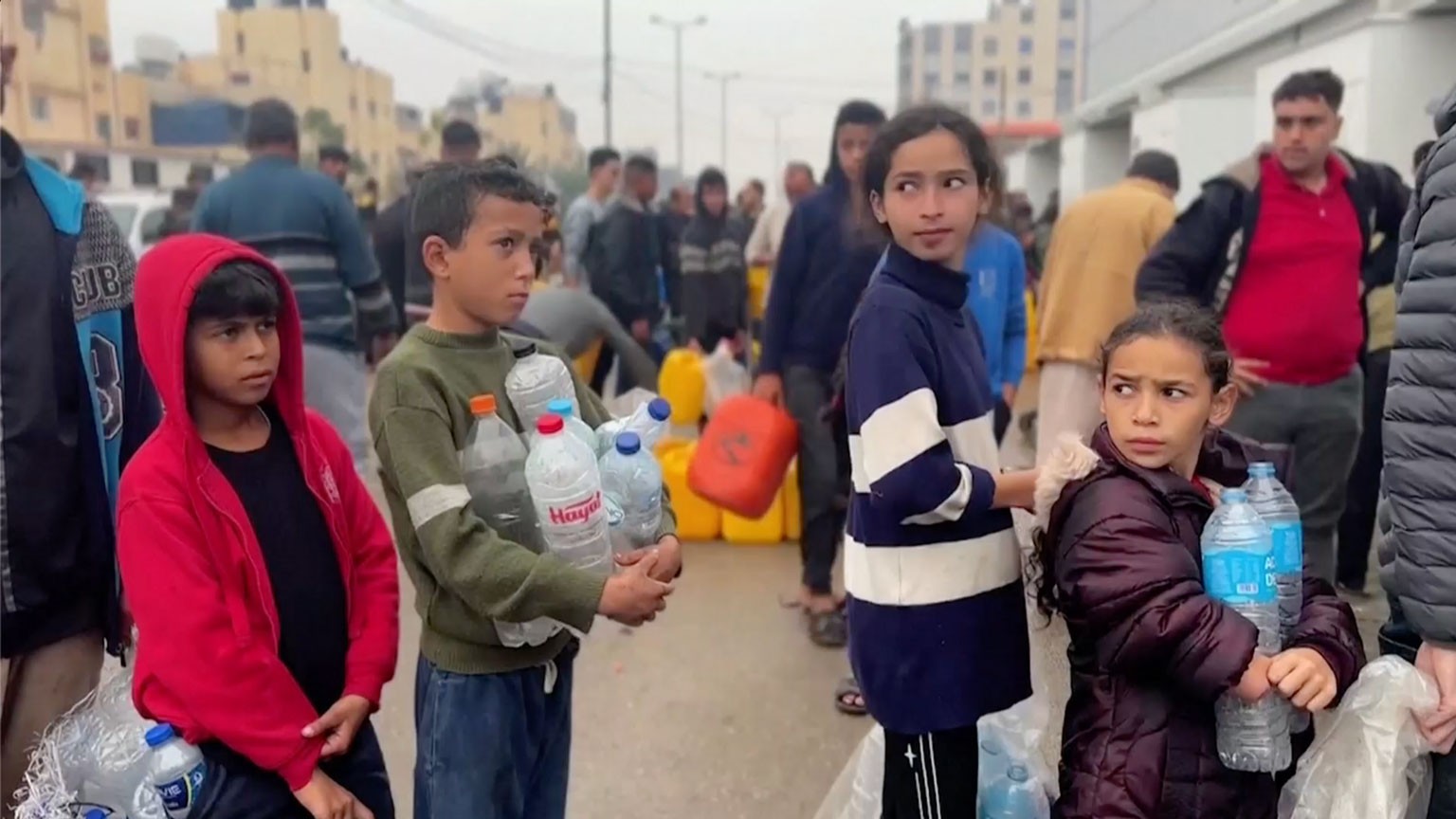"I am walking more than 10 kilometers to get a small amount of water for my children," said a man in Rafah in the southern part of the Gaza Strip.
"There is no water, no food or medicine, and I wash my body only once a month," another man said.
The United Nations Children's Fund, or UNICEF, said in a report last month that water supplies in Gaza have plunged to 5 percent of what they were before the conflict began in October, due to fuel shortages and damage to infrastructure caused by the Israeli military attack.
'It's salty and dirty but I'm drinking it.'
UNICEF said more than 300 wells across the Gaza Strip accounted for about 80 percent of the water supply.
But other UN agencies said that as of Friday, most of the wells have stopped operating due to fuel shortages.
UNICEF said the daily amount of water available for drinking and cooking is limited to 3 liters per person. International aid organizations have estimated people each need at least 15 liters per day.
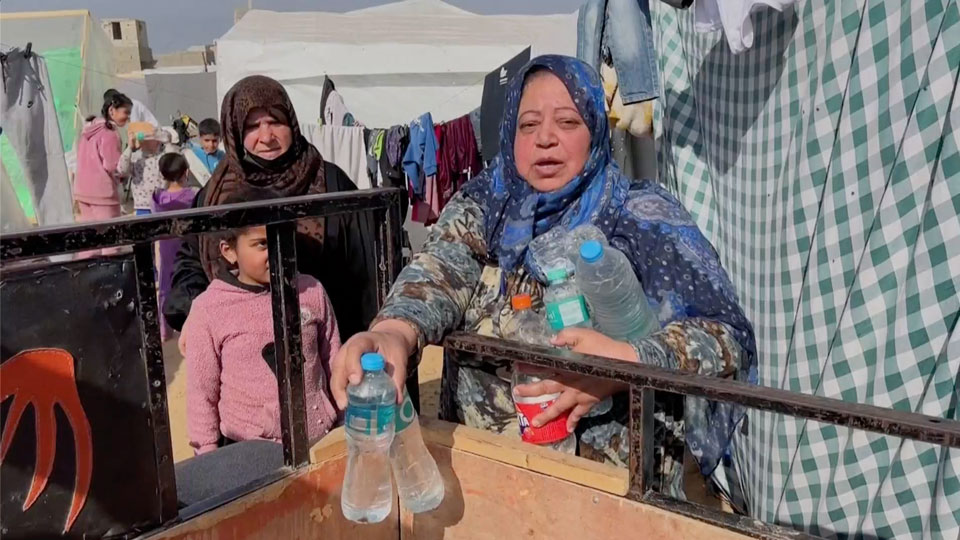
Some people have no choice but to use untreated water due to the shortages.
"It's salty and dirty but I'm drinking it," said a woman in Rafah. She said she also uses it for washing.
She said children are suffering from diarrhea.
WHO: 'One shower for 700 people'
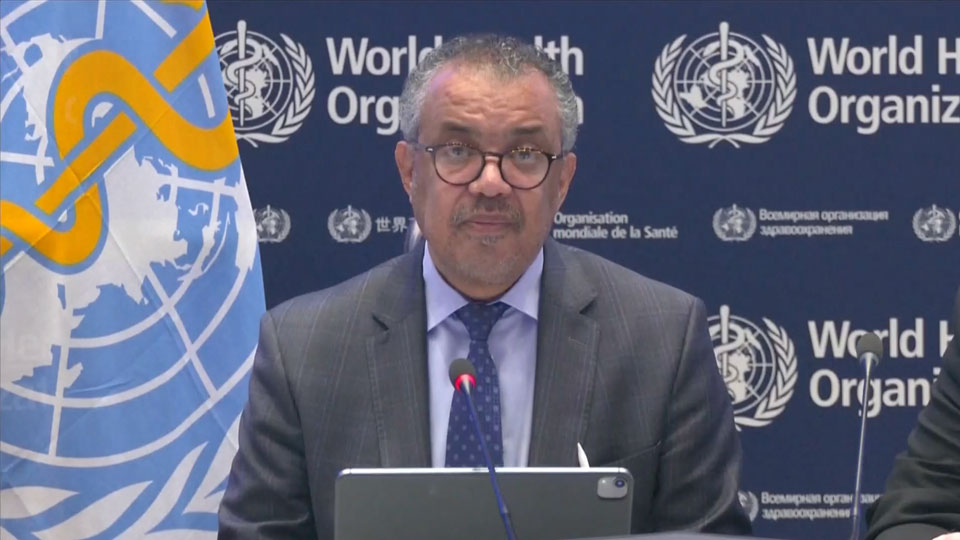
WHO Director-General Tedros Adhanom Ghebreyesus said that as more and more people move into a small area, overcrowding combined with other factors is "creating the ideal conditions for disease to spread."
He added, "On average there is one shower unit for every 700 people and one toilet for every 150 people."
He expressed strong concerns that the situation will worsen as winter approaches.
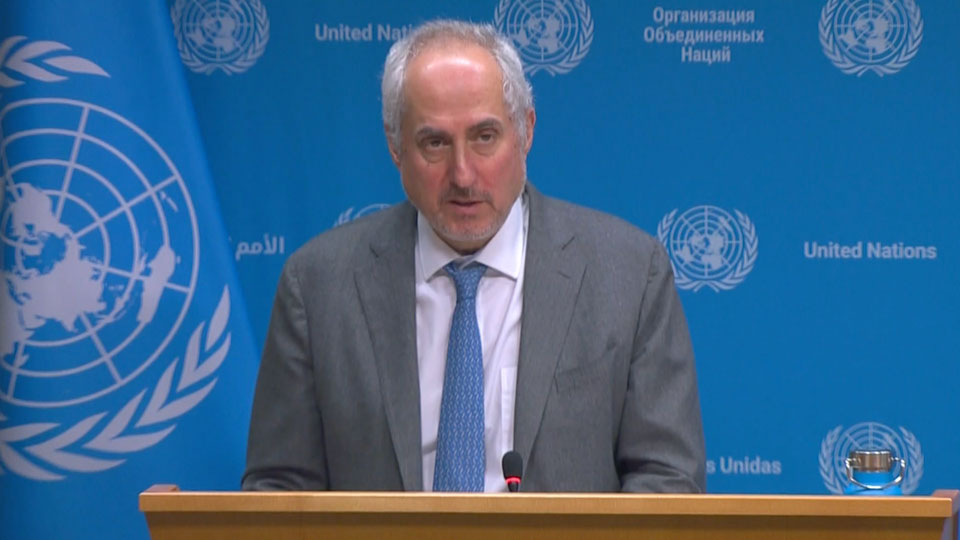
Deliveries of aid supplies such as water and fuel from the Egyptian side through the Rafah checkpoint remain restricted.
The UN Office for the Coordination of Humanitarian Affairs, or OCHA, said that only 100 trucks carrying humanitarian supplies entered the Gaza Strip on Sunday. That was down sharply from a daily average of 500 before the fighting began.
The Israeli military said on Monday that it will also conduct safety checks on aid supplies to Gaza at the Kerem Shalom checkpoint on the border. But it said it will continue to limit the delivery of relief supplies to the Rafah checkpoint.
UN spokesperson Stephane Dujarric stressed on Monday that relief supplies need to be delivered through the Kerem Shalom checkpoint.
Voices of protest
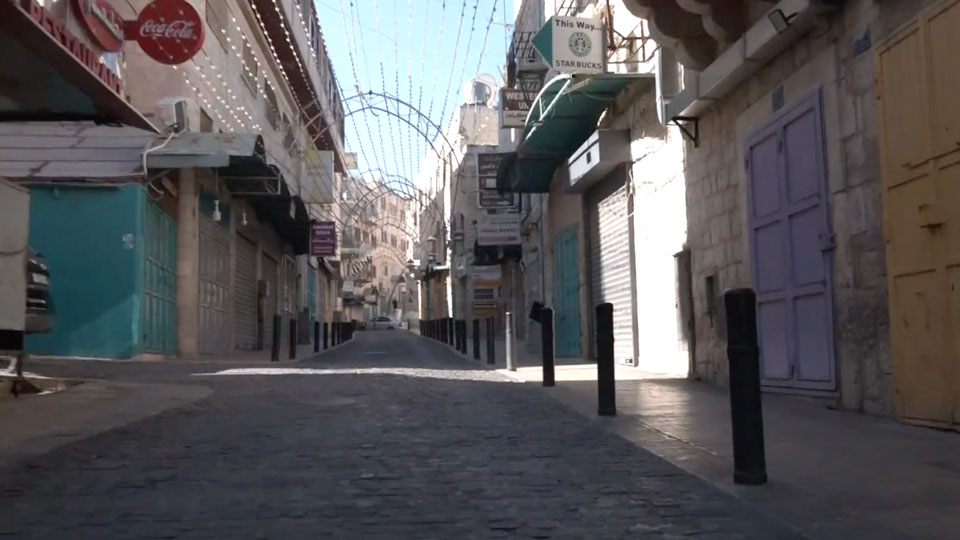
People have been protesting against the fighting, as prospects for another ceasefire fade and deliveries of relief supplies continue to face restrictions.
In the West Bank, workers staged a massive strike on Monday to protest Israel's continued assault on Gaza. Schools and shops were shut across the region.
Strikers criticized not only Israel but also spoke out against the United States, which vetoed a draft resolution at the UN Security Council on Friday which had called for an immediate ceasefire for humanitarian purposes.

Demonstrators also took to the streets of London on Monday, calling on the United Kingdom's government to support a ceasefire.
A charity organized the protest after the UK was the only country to abstain from voting on the UN Security Council resolution on Friday.
More than 200 people, including parents and children, gathered in front of the prime minister's office in London. They shouted, "Stop air strikes against children," and "Prime Minister Sunak should be ashamed."
A mother of two said she wants the chain of violence to stop instead of continuing to harm children.
